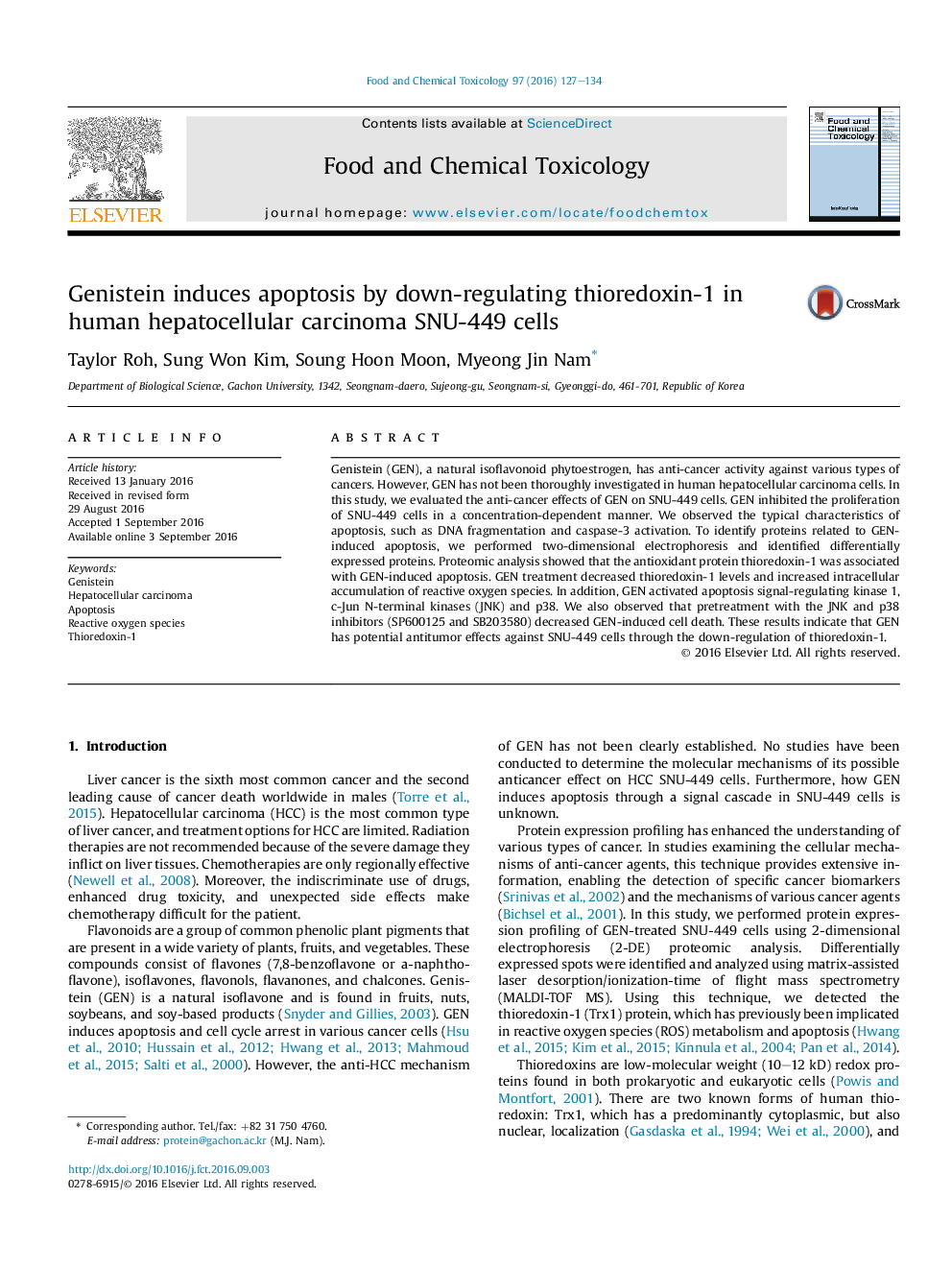| کد مقاله | کد نشریه | سال انتشار | مقاله انگلیسی | نسخه تمام متن |
|---|---|---|---|---|
| 2584830 | 1561747 | 2016 | 8 صفحه PDF | دانلود رایگان |
• GEN induces apoptosis in hepatocellular carcinoma SNU-449 cells.
• GEN suppresses expression of thioredoxin-1 in SNU-449 cells.
• GEN increases intercellular ROS level.
• GEN activates ASK1 and JNK in SNU-449 cells.
Genistein (GEN), a natural isoflavonoid phytoestrogen, has anti-cancer activity against various types of cancers. However, GEN has not been thoroughly investigated in human hepatocellular carcinoma cells. In this study, we evaluated the anti-cancer effects of GEN on SNU-449 cells. GEN inhibited the proliferation of SNU-449 cells in a concentration-dependent manner. We observed the typical characteristics of apoptosis, such as DNA fragmentation and caspase-3 activation. To identify proteins related to GEN-induced apoptosis, we performed two-dimensional electrophoresis and identified differentially expressed proteins. Proteomic analysis showed that the antioxidant protein thioredoxin-1 was associated with GEN-induced apoptosis. GEN treatment decreased thioredoxin-1 levels and increased intracellular accumulation of reactive oxygen species. In addition, GEN activated apoptosis signal-regulating kinase 1, c-Jun N-terminal kinases (JNK) and p38. We also observed that pretreatment with the JNK and p38 inhibitors (SP600125 and SB203580) decreased GEN-induced cell death. These results indicate that GEN has potential antitumor effects against SNU-449 cells through the down-regulation of thioredoxin-1.
Journal: Food and Chemical Toxicology - Volume 97, November 2016, Pages 127–134
